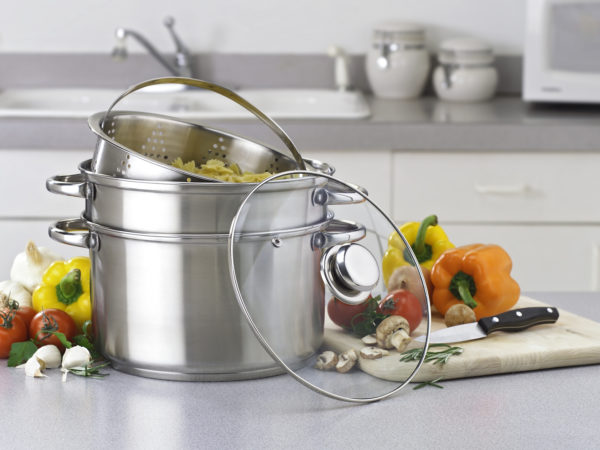Aluminum Cookware: What Are The Concerns?

Aluminum is all around us – it is widely distributed in soil, plants and water, including our food and drinking water, where it is always bound to other substances. But there is no known need for pure aluminum – the kind found in cookware – in human nutrition. Because it is so chemically reactive, it is probably not good for us, and evidence suggests that ingesting aluminum can be harmful to the kidneys and may weaken bones by depleting the body of phosphorus and calcium.
Since aluminum is a superior heat conductor, many cookware products contain it. While I find aluminum ideal for stovetop work, I advise choosing cookware that does not allow food to come in direct contact with it. Look for quality pots and pans that cover the aluminum with stainless steel, ceramic or some other non-reactive material. In the long run, investing in and learning to cook with cast iron will help lower your aluminum exposure as well as other potentially toxic non-stick surfaces and may help support some intake of the essential mineral iron.
Today’s Health Topics
Editor's Pick
Health Focus
Ask Dr. Weil's Q&A
| Weekly Wellness Bulletin |
| Sign up for our once a week, in-depth health bulletin - sent out on Thursdays. Dr. Weil shares the very latest from the ever-changing world of health and nutrition. Stay on top of the latest news in this doctor-reviewed weekly compilation. |
|










